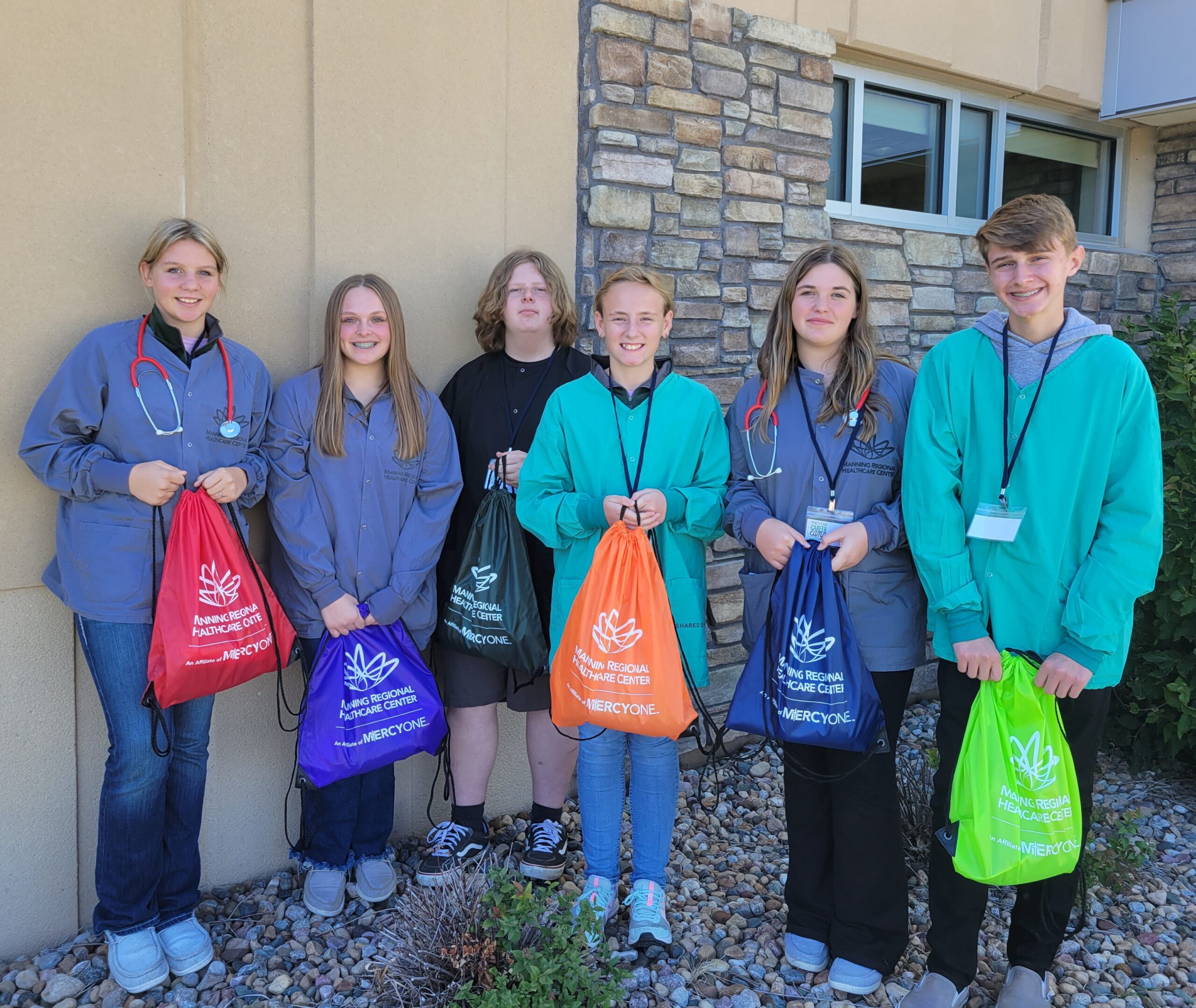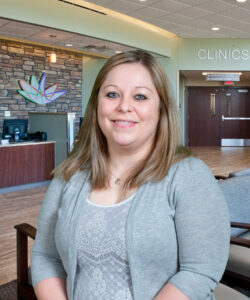 “When people think of healthcare, they often think of nurses, doctors, etc. – but there is so much more that goes into our patients having the best experience possible,” shared MRHC Revenue Cycle Director, LeeAnn Christensen, MHA.
“When people think of healthcare, they often think of nurses, doctors, etc. – but there is so much more that goes into our patients having the best experience possible,” shared MRHC Revenue Cycle Director, LeeAnn Christensen, MHA.
Christensen and her team have an integral role at MRHC as the revenue cycle is the first and last encounter for a patient in a healthcare setting, whether it’s walking in the doors to register, calling to schedule an appointment, billing insurance, and everything that comes after patient care is done.
“There are so many talented and knowledgeable staff who are needed in the revenue cycle, and a lot goes into it,” said Christensen. “From registration to coding, billing, and patient billing, having our key players with the right personalities, certifications, and schooling is vital for our patients and MRHC.”
A local to the area, Christensen graduated from IKM, received her associate degree from DMACC in Carroll, and worked as a CNA at the Manilla Manor during college. After receiving her bachelor’s degree in Business Management from the University of Phoenix she worked at Myrtue Medical Center in Harlan as a Medicaid biller. She then moved to Omaha and held a variety of positions at The Nebraska Medical Center, gaining more revenue cycle experience. Once she completed her Master’s in Healthcare Administration from Clarkson College, she was ready to be back in a rural area.
Christensen moved home after accepting a night ward clerk position at MRHC in 2013. She soon transitioned to an administrative assistant at MRHC and eventually came back to the revenue cycle, working in various positions as Chargemaster Coordinator, PFS Coordinator, Patient Access Manager, and Privacy/Compliance Officer. In 2021, she began her current role as the Revenue Cycle Director.
“MRHC has helped me grow, and I am extremely thankful for all the opportunities I’ve had at MRHC to gain knowledge in a variety of departments. My experience has given me a great, well-rounded base in my journey to get me where I am today,” said Christensen. “MRHC adapts as the industry changes and looks within to see how to utilize the great staff that is here. Having the support and encouragement to keep learning and growing is something that I very much appreciate!”
“LeeAnn’s vast background in healthcare and tremendous work ethic make her an extremely valuable asset to MRHC that we are lucky to have,” shared Chief Financial Officer, Amy McLaughlin, CPA. “She has an eagerness to learn and a desire to make herself and the teams she leads grow and improve daily.”
In addition to gaining experience within various aspects of the healthcare setting and having the opportunity to grow in her career, Christensen also values being able to work close to home.
“MRHC offers flexibility and promotes a work-life balance that is very hard to achieve, especially in management/supervisory roles,” Christensen points out. “We all agree, family comes first, and that message starts at the top of the organization. Being able to work so close to home in this type of role is something I am grateful for. I can take kids to their appointments, events, and be right there for the unexpected. Knowing I’m only a few minutes away from them during the day is great!”
She also recognizes that it is especially important in healthcare to be surrounded by a good group of people in a positive team environment.
“MRHC has taken huge strides in promoting a positive, supportive, and uplifting team environment and we can see it throughout the facility,” shared Christensen.
Christensen also points out that every role in the healthcare setting is equally important and makes an impact.
“I really like knowing that my work at MRHC helps take care of those I love and who mean the most to me,” said Christensen. “Helping my friends, family, and loved ones is priceless. I know I can make an impact on them, even if it’s behind-the-scenes. I want to remind people that there are quite a variety of roles in different areas for those who want to work in healthcare but not on the clinical side.”
If you would like to join the MRHC team, visit www.mrhcia.com/careers or call (712) 655-2072 for more information on current job openings.
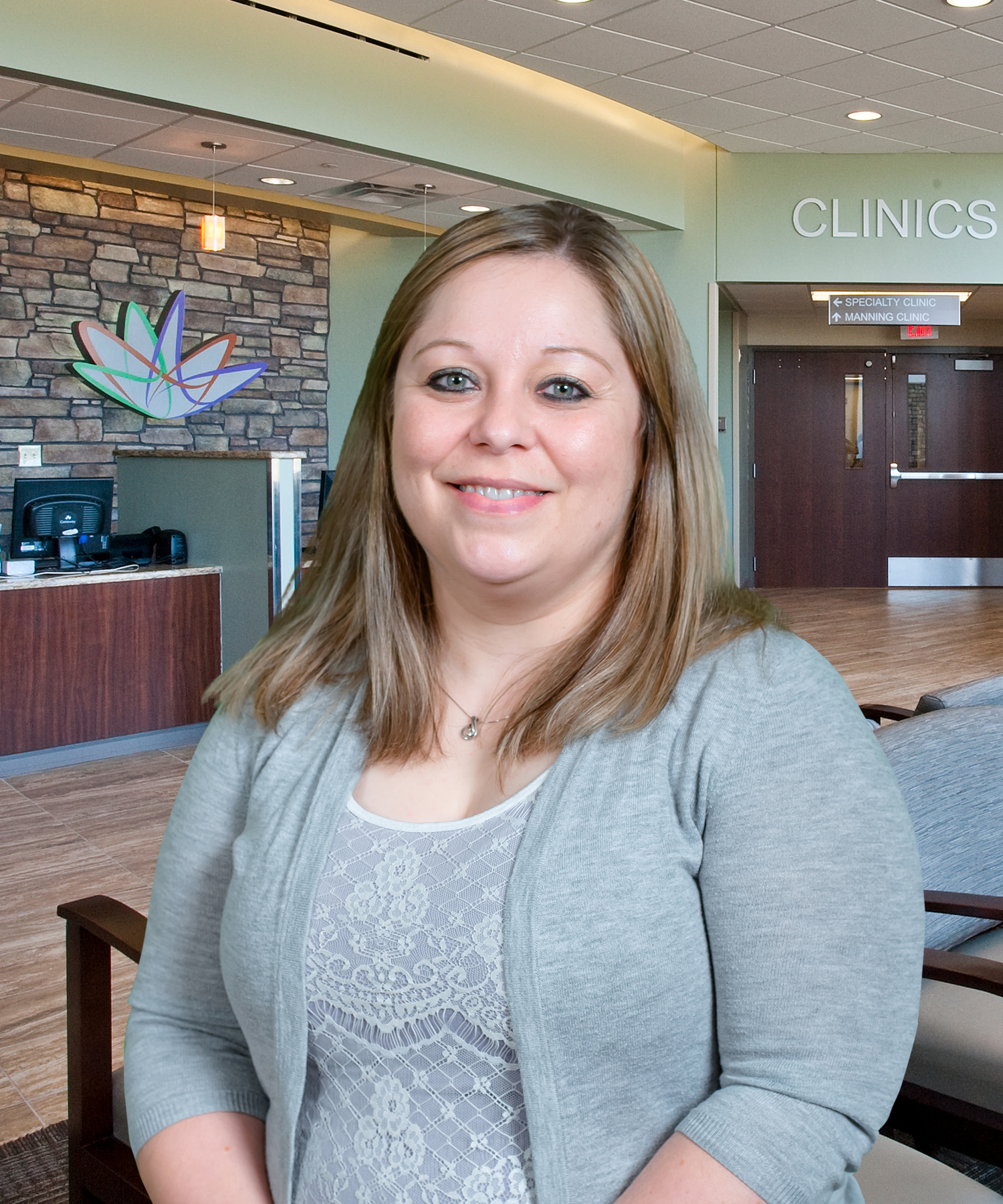
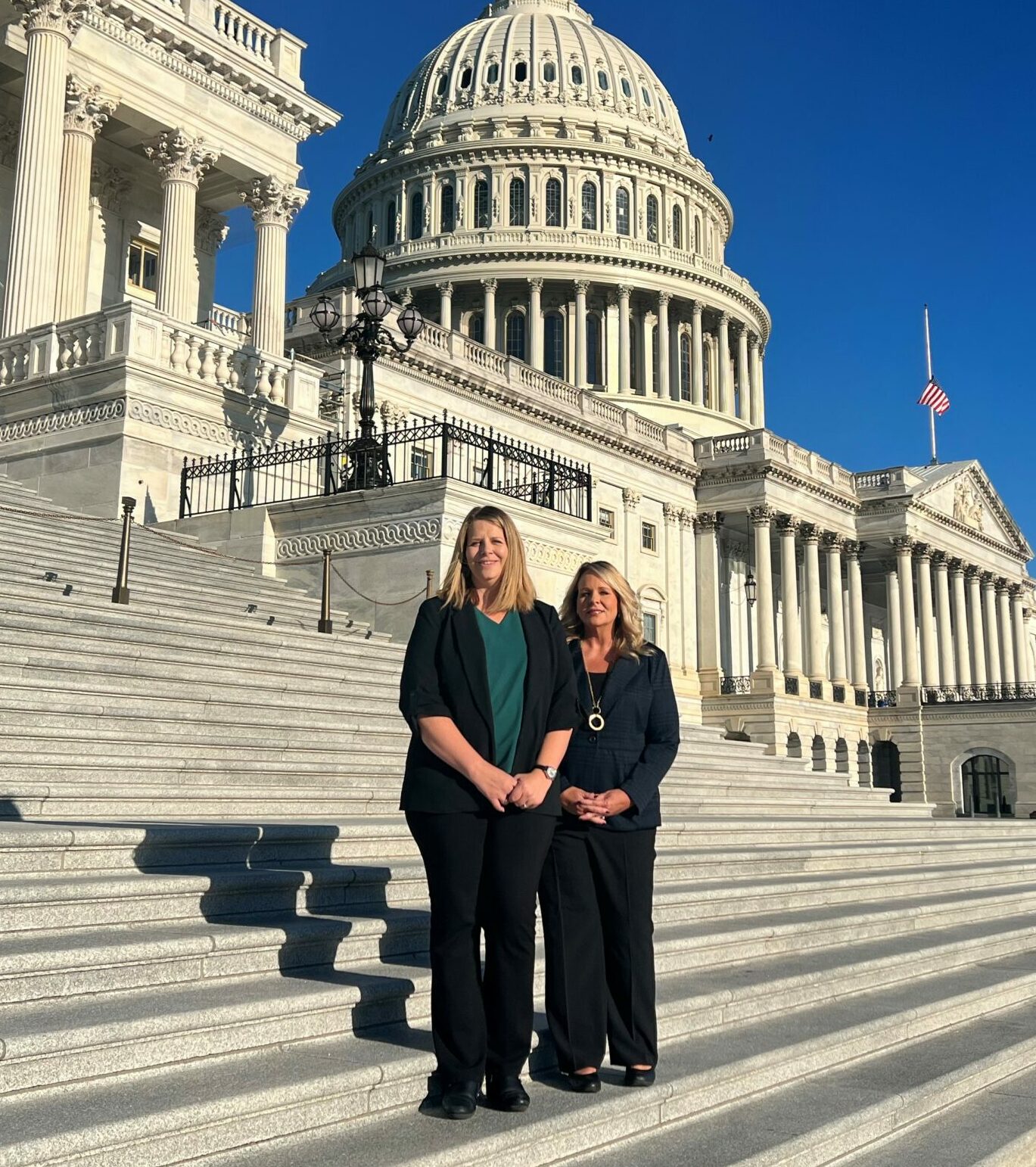
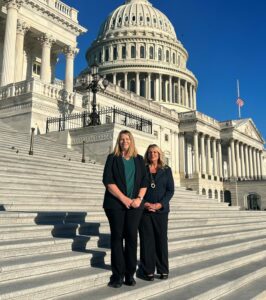
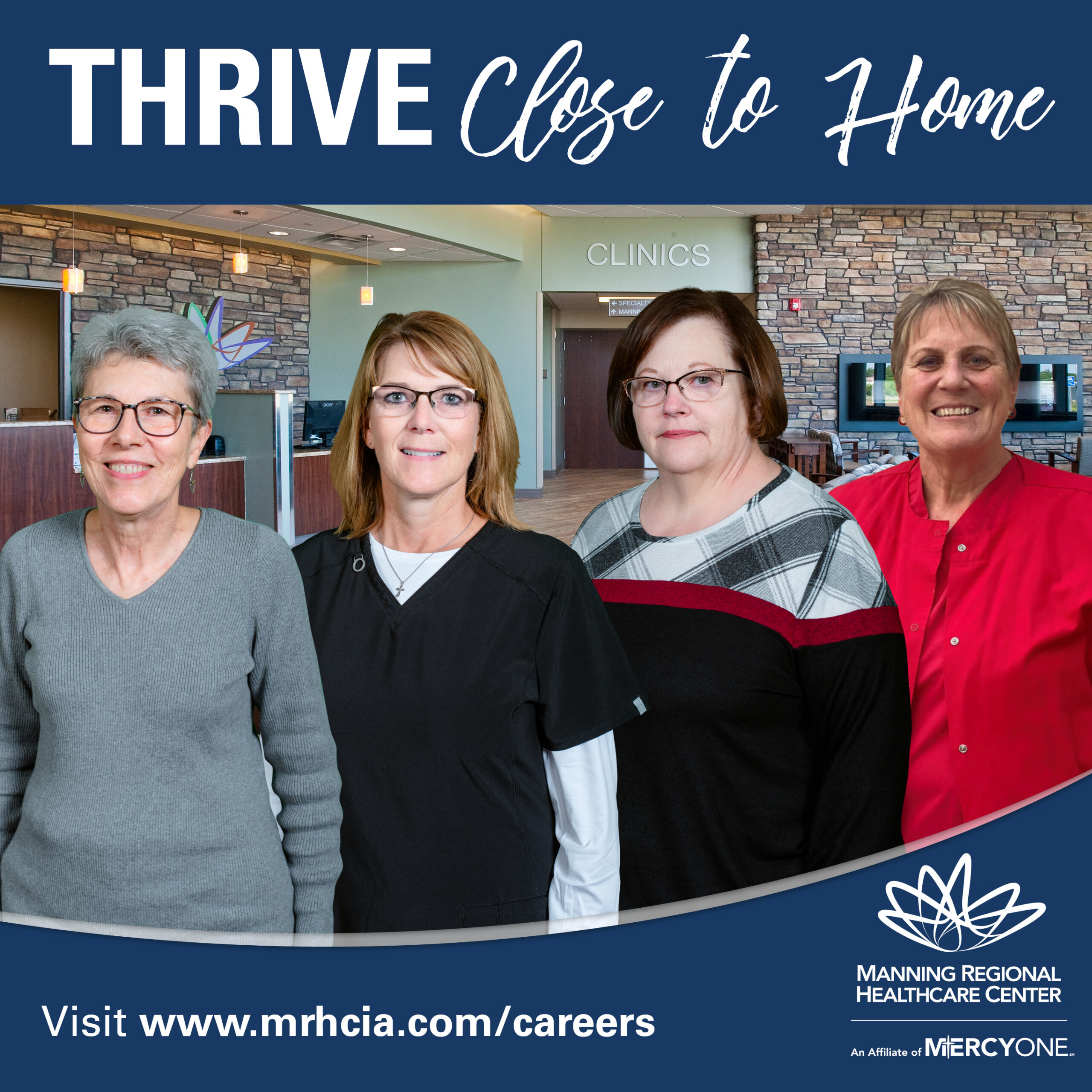
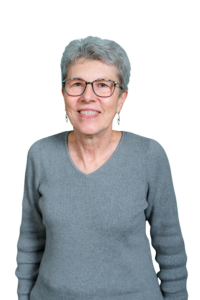
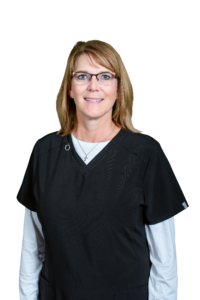
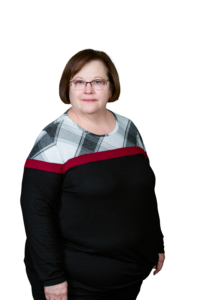
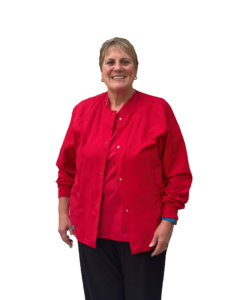 “I wanted to be closer to home instead of having to drive 20 plus miles one way to work every day,” shared Stein, RN, BSN. “I thought it would be great to come back full circle to the clinic setting that I originally started at when I first came to Manning.”
“I wanted to be closer to home instead of having to drive 20 plus miles one way to work every day,” shared Stein, RN, BSN. “I thought it would be great to come back full circle to the clinic setting that I originally started at when I first came to Manning.”